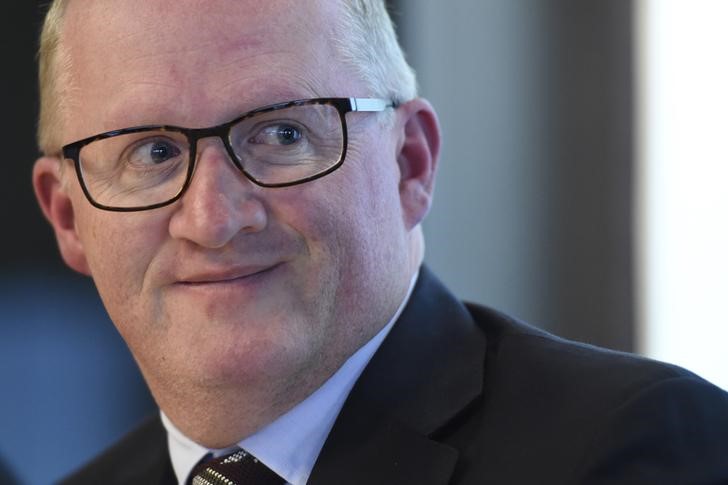By Geoffrey Smith
Investing.com -- The European Central Bank will have to continue raising interest rates after this month's meeting, in the light of strong underlying inflation, the ECB's chief economist Philip Lane said on Monday.
"The current information on underlying inflation pressures suggests that it will be appropriate to raise rates further beyond our March meeting," Lane, an influential figure on the ECB's Frankfurt-based directorate, said in a speech in Dublin, although he didn't commit the extent of any further tightening beyond March.
"While there has been a clear turnaround in energy inflation and there are some signs of deceleration for food inflation, momentum for core inflation has not declined," Lane explained, highlighting that "momentum in the goods category remains strong."
Higher-than-expected consumer inflation data for February - especially core inflation, which accelerated to 5.6% - had triggered a sharp selloff in Eurozone bonds last week, with investors moving to price in expectations that the ECB may raise its deposit rate to an all-time high of 4% by the end of the year, and only start to reverse course in 2024.
The ECB has all but nailed on a 50-basis point increase in its three key rates at its meeting on March 16. Many analysts have also started to predict a similar hike at the following meeting in May. The comments from Lane, arguably the most senior 'dove' at the ECB, suggests there is little resistance to that idea in Frankfurt.
Lane acknowledged that the unwinding of various price shock effects from the pandemic and Russia's invasion of Ukraine may unwind only gradually, keeping headline inflation high enough for long enough to cause an upward shift in inflation expectations among the population.
However, at the same time, he argued that the impact of changes in energy prices on core inflation appeared to be more immediate now than it had been before the pandemic, holding out the hope that the collapse of wholesale energy prices in the last few months may quickly be reflected in declines in the headline rate of inflation.
The euro was broadly flat after Lane's speech. By 06:00 ET (11:00 GMT), it was down less than 0.1% at $1.0627. Ten-year bond yields, however, came down strongly, with the German Bund yield falling 7 basis points to 2.58% and the Italian BTP yield falling 11 basis points to 4.43%.
